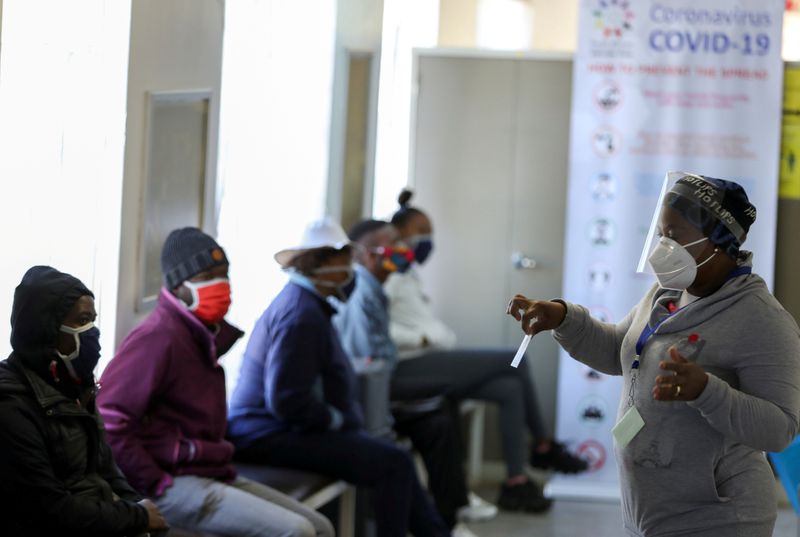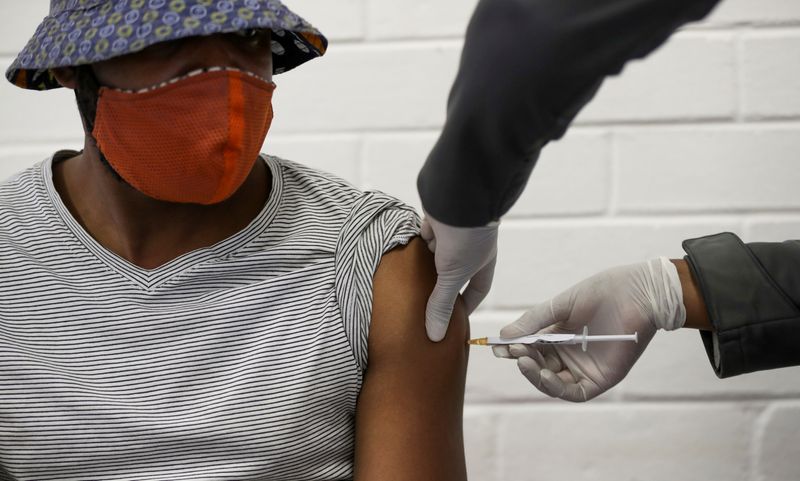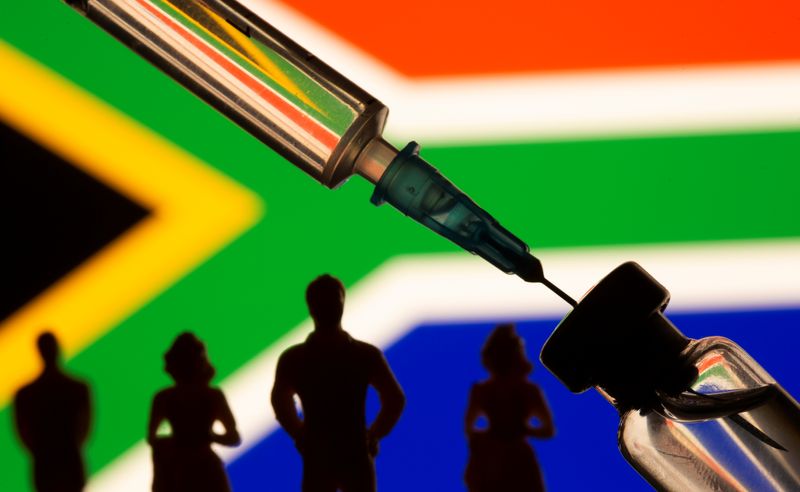JOHANNESBURG (Reuters) – South Africa is looking at ways to deploy AstraZeneca’s COVID-19 vaccine after temporarily putting on hold plans to roll it out to healthcare workers, and opting to use Johnson & Johnson shots first, government advisers said on Tuesday.
The government had planned to start rolling out 1 million doses of the AstraZeneca shot later this month, but trial data published after they had arrived showed the vaccine offered minimal protection against mild-to-moderate disease caused by the country’s dominant coronavirus variant.
The data was a disappointment to Africa as a whole as the AstraZeneca vaccine is seen as one of the best-suited to use on the continent as it can be stored at refrigerator temperatures, rather than the ultra-cold temperatures needed for shots from Pfizer/BioNTech.
eSwatini Health Minister Lizzie Nkosi said on Tuesday her country, which borders South Africa, had notified the global vaccine distribution scheme COVAX that it would no longer use the AstraZeneca shot.
COVAX plans to start sending millions of AstraZeneca doses to African countries this month.
In South Africa, the plan now is to start the vaccination programme with Johnson & Johnson shots in mid-February, after the U.S. company promised to expedite deliveries.
A joint lead investigator for the Johnson & Johnson South African vaccine trial said on Tuesday the country’s regulator was processing an application for the vaccine to be granted emergency authorisation.
‘TWO-STEP ROLLOUT’
Members of the government’s Ministerial Advisory Committee said the plan was not to discard the AstraZeneca shots. Rather, their use would be suspended until more evidence was available on whether the vaccine protects against severe COVID-19 from the 501Y.V2 variant, which is more contagious and currently accounts for more than 90% of the country’s cases.
“AstraZeneca may well have a place, it may well have a significant place. This is only a suspension, not turfing it out,” Professor Barry Schoub told Reuters. “We have got in South Africa a problem with the variant, it all hinges on that.”
Schoub said a number of options were being looked at for the AstraZeneca shots, including whether they could be used in combination with another vaccine, to see whether one dose “either the prime or the booster with the AstraZeneca may work well synergistically with another vaccine”.
Another adviser, Professor Salim Abdool Karim, told local TV channel Newzroom Afrika that a “two-step rollout” was being considered for the AstraZeneca vaccine.
After an initial round of vaccinations, hospitalisation rates would be assessed “and if we are happy that it’s within the range we want to see, then we continue with the rollout,” he said.
ADAPTING VACCINE
South Africa aims to vaccinate 40 million people, or two-thirds of the population, to achieve some level of herd immunity.
AstraZeneca’s chief executive said on Tuesday that his company believed its vaccine should still protect against severe COVID-19. The Anglo-Swedish firm said earlier that it was adapting its vaccine to the 501Y.V2 variant.
Abdool Karim suggested on Monday that South Africa could start by giving 100,000 people the AstraZeneca jab to see how well it worked on preventing hospitalisation and death.
But Schoub said that was still under discussion.
Separately, local pharmaceutical company Lamar International said it was looking to sell 15 million doses of Russia’s Sputnik vaccine to the government.
It declined to name the price per dose, but said it could start supplying them if regulator SAHPRA granted approval for the vaccine to be used.
(Reporting by Alexander Winning; Editing by Olivia Kumwenda-Mtambo and Alex Richardson)


























